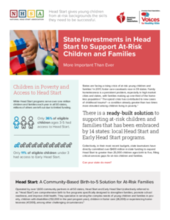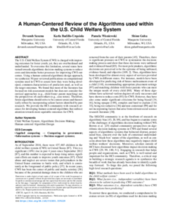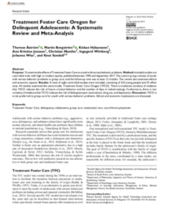Displaying 791 - 800 of 2221
This brief from Head Start provides an overview of state funding for Head Start, a collection of comprehensive birth to five programs in the U.S. specifically designed to strengthen families, promote school readiness, and improve child health.
Using a human-centered algorithmic design approach, the authors of this study synthesize 50 peer-reviewed publications on computational systems used in the U.S. Child Welfare System (CWS) to assess how they were being developed, common characteristics of predictors used, as well as the target outcomes.
This book prepares future child welfare professionals to tackle the complex and challenging work associated with responding to child maltreatment.
The authors of this study propose a strategy that increases system collaboration, leverages existing infrastructure, and adopts multi-source funding models that invest in prevention services to inoculate society against child abuse and neglect (CAN).
In this opinion piece for the San Francisco Chronicle, Juliana E. Morris, M.D., EdM, Monica Hahn, M.D., MPH, MS, and Eva Raphael M.D., MPH - family doctors at the Family Health Center of San Francisco General Hospital and UCSF - describe the health impacts of family separations under detention.
This article from the Washington Post tells the story of Geard Mitchell, a foster youth who spent part of his childhood in a juvenile detention center.
The aim of this paper is to examine the effects of Treatment Foster Care on youth with serious behavior problems.
This study reports on trans adults’ fears of discrimination and openness to child characteristics in the adoption/foster care process in the U.S., relative to cisgender sexual minority parents.
This episode of the Mobituaries podcast describes the "Orphan Train" movement of the late nineteenth and early twentieth centuries - an initiative that sent 250,000 orphaned children from the crowded cities of the East Coast of the United States and sent to the rural Western United States from 1854 to 1929.
This study employed a retrospective lens to explore adult experiences of their family post-deportation. Findings show that family went through a reorganization process after parental deportation which impacted how the child understood the deportation and affected the child’s perceptions and experiences of their parental loss.



